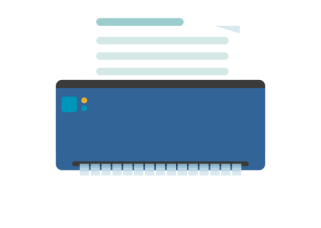
Quicklinks
Top Results

Cybersecurity Awareness: Protecting Your Money and Your Community
RALEIGH, N.C. — Cyber criminals look for new ways to exploit individuals, families, and even entire communities. Phishing scams—fake text messages, emails, phone calls and websites—are evolving and increasing. October is Cybersecurity Awareness Month, making it the perfect time to focus on the simple steps you can take to keep your information safe and secure.
“Cybersecurity isn’t just a technology issue, it’s a community issue,” said Sandy Steward, Civic Credit Union Chief Technology Officer. “Whether you’re managing your personal budget and business accounts, or overseeing public services like water, sanitation, or emergency response, the stakes are high. A single compromised account can disrupt daily life and erode trust.”
Simple habits to protect yourself from fraud and cybercrime
A few proactive habits and the right resources, you can reduce your risk. Here are five practical, easy to follow steps that you can take to safeguard your personal financial information:
- Think before you click — Phishing scams are one of the most common cyber threats. If an email or text message looks suspicious, don’t click on links or download attachments.
Legitimate organizations will never ask for sensitive information like passwords or account numbers.
- Use strong, unique passwords — Avoid using the same password for multiple accounts. Create strong passwords that include a mix of upper- and lowercase letters, numbers, and special characters like punctuation marks and symbols. Passwords shouldn’t include "guessable" data. The longer the password the better.
- Enable multi-factor authentication (MFA) — MFA, also known as two-factor authentication or 2FA, adds an extra layer of security by requiring a code or additional verification step when you log in. Even if a hacker gets your password, MFA makes it much harder for them to access your account. According to the Cybersecurity and Infrastructure Security Agency (CISA), MFA can prevent about 99 percent of “automated hacking attacks” on accounts.
- Keep your software updated — Regularly update your phone, tablet, computer and smart home devices. Set devices to update automatically when possible.
- Monitor your accounts regularly — Check your bank accounts and credit card statements often. If you notice unusual activity, report it immediately to your financial institution.
Civic’s commitment to security
At Civic, we strive to stay ever mindful and vigilant about these trends and emerging threats. Protecting the information of our members, partners and our communities is a top priority. Just as important, we focus on education. By helping members, families and friends recognize scams and take preventative steps, we empower you to play an active role in your financial and information security.
Why it matters
Cybersecurity might seem overwhelming, but small actions make a big difference. By staying informed and practicing good habits, you protect not only your money and information but also your community’s essential services.
Take the time this month to protect your valuable information. For more information on how to protect your cyber data, visit Civic Security.
About Civic Credit Union
Civic Credit Union is a not-for-profit financial institution created exclusively for North Carolina’s local government employees, volunteers, and their families. Built with purpose and powered by service, Civic delivers modern banking solutions through secure digital tools, personalized support, and in-person access across the state. With deep roots in public service, and a mission to meet members where they are, Civic is committed to helping those who serve their communities achieve financial well-being.





